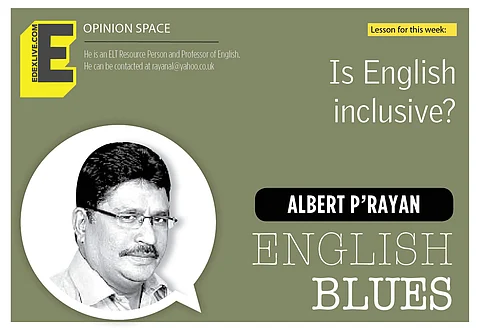

Afew weeks ago, many news websites in the US and the UK carried a news story about a popular singer announcing their (not ‘her’) gender identity as non-binary. Here are some of the headlines:
• Demi Lovato Says They Are Nonbinary | Time
• Lovato reveals they are nonbinary, changing their pronouns | CNN
• Singer Demi Lovato says they identify as nonbinary: ‘This is my truth and I can’t shove it down’ |
The Washington Post
On May 19, two-time Grammy Award-winning singer Demi Lovato said that ‘it would mean the world’ if people used singular they/them/their to refer to them. Announcing the news on Twitter, the singer said, “Today is a day I’m so happy to share more of my life with you all. I am proud to let you know that I identify as non-binary and will officially be changing my pronouns to they/them moving forward.”
Lovato has also described themself as queer. LGBT (Lesbian, Gay, Bisexual and Transgender) people call themselves queer as they do not want to be described or identified as straight or cisgender. It requires a lot of courage for anyone to state that they are not heterosexual or not cisgender.
In India, traditionalists who are obsessed with linguistic rules and those who are not exposed to the gender-neutral singular ‘they’ will surely find fault with the headlines and point out the errors, whereas revisionists will welcome the flexibility of the English language that accommodates changes when situations demand it. The fact that non-binary people exist and they don’t want to identify themselves as either male or female implies that traditional pronouns ‘he’ and ‘she’ cannot be used to
refer to any non-binary person.
India is slow to this change. Only in 2014, the Supreme Court of India recognised transgender as gender and stated that “recognition of transgenders as a third gender is not a social or medical issue but a human rights issue”. Our education system makes us believe that there are only two gender identities: male and female. They are not the only genders. There are different gender identities and they include male, female, transgender, gender-neutral, non-binary, agender, pangender, two-spirit, third gender, and all, none or a combination of these.
Widespread sexism and gendered language can be seen in media reports, social media posts, and television discussions and debates in our country. Some newspapers still use sexist terms such as actress, air hostess, male nurse, male secretary, male model, male prostitute, female doctor, career women, etc.
A society that professes gender equality recognises gender differences and celebrates inclusiveness. India still has a long way to go.
